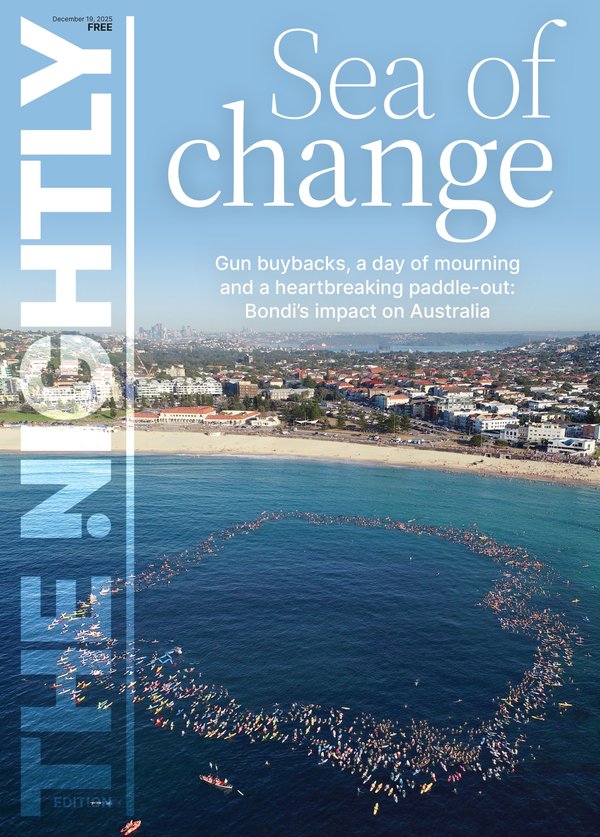Kerryn Tate: Search for Gibson guitar that could help solve murder mystery 45 years on
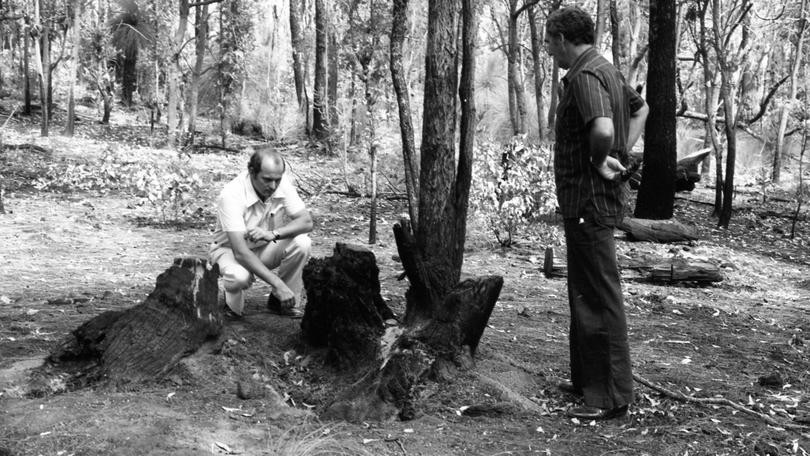
A nation-wide search is on for a guitar, like the one immortalised in the film Back to the Future, in the hope that it could be the key to solving one of Australia’s most macabre murder mysteries.
The Gibson ES 335, a semi-acoustic model favoured by Chuck Berry and almost identical to the guitar played by Michael J Fox in the classic time-travel movie, has emerged as a fresh clue in the grisly death of NSW woman Kerryn Tate.
Sign up to The Nightly's newsletters.
Get the first look at the digital newspaper, curated daily stories and breaking headlines delivered to your inbox.
By continuing you agree to our Terms and Privacy Policy.The vivacious 22-year-old, who was born in Victoria but moved to Avalon Beach with her family when she was 12 months old, was killed in WA in 1979.
Her badly burnt body was found slumped over a smouldering log in bushland south-east of Perth, a year after she crossed the Nullarbor.
The media dubbed the crime the “bonfire murder”.
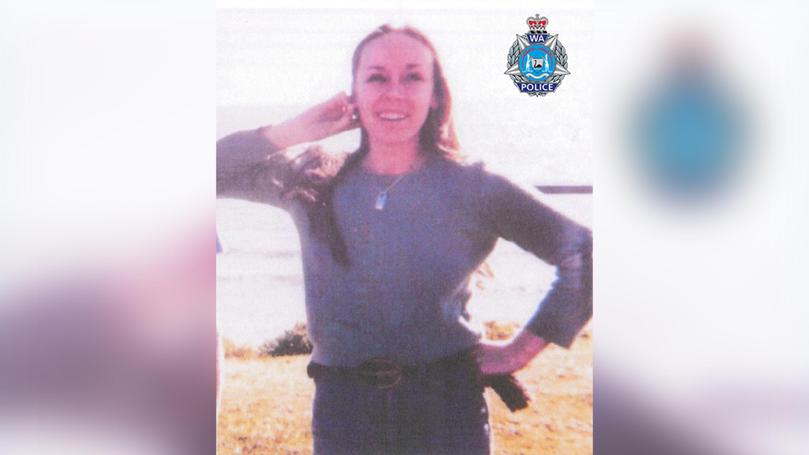
The sickening arrangement, and the presence of burnt items dotted in a semi-circle around the charred stump, stoked rumours Ms Tate’s death was linked to witchcraft.
Police found no evidence she was involved in the occult but nobody has been charged with the crime.
Now, on the 45th anniversary of Ms Tate’s death, a new clue has emerged that puts a suburban thief in the frame for murder.
Musician husband and wife Peter and Judy Bright are convinced the person who stole their instruments in September 1979 knows something about Ms Tate’s death.
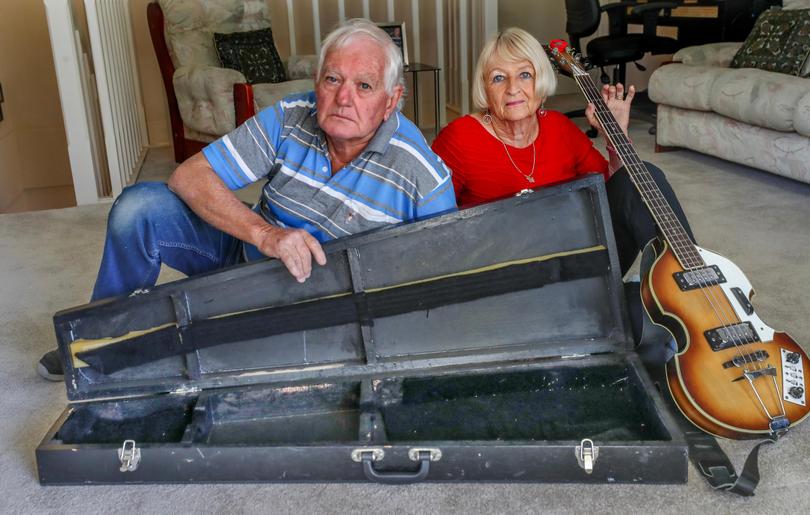
The couple’s musical equipment and instruments were stolen around the time Ms Tate’s body was found by forestry workers on December 30 of that year.
“I had seen a story in the newspaper around the time she died about how police wanted some information about some silver medallions that had been found,” Mr Bright told The Nightly.
“I recognised them immediately. They had a keyhole shape cut into them and we wore them when we played because Keyhole was the name of our band.
“I thought it was a cause for celebration because it meant we might be able to find our instruments and gear. We had found the trailer everything was in but the actual gear was still missing.
“The newspaper story didn’t mention anything about a murder. I rang the police and said the medallions were ours and had been stolen during a robbery a couple of months earlier.
“They came out fast. They drove me to the site where our gear had been found burnt out around the stump that Kerryn’s body was on.
“Two pillar speakers were laying down, totally burnt out.
“There was a Fender twin reverb amplifier. A bass speaker box was facing down into the dirt, that wasn’t burnt. Near that there was an amplifier that used to sit on top of it.
“There was a case full of wire opened up and stuff like microphones strewn around, all burnt in a semi-circle around the stump.
“I saw our light boxes, we had built them ourselves, and a lighting control unit.”
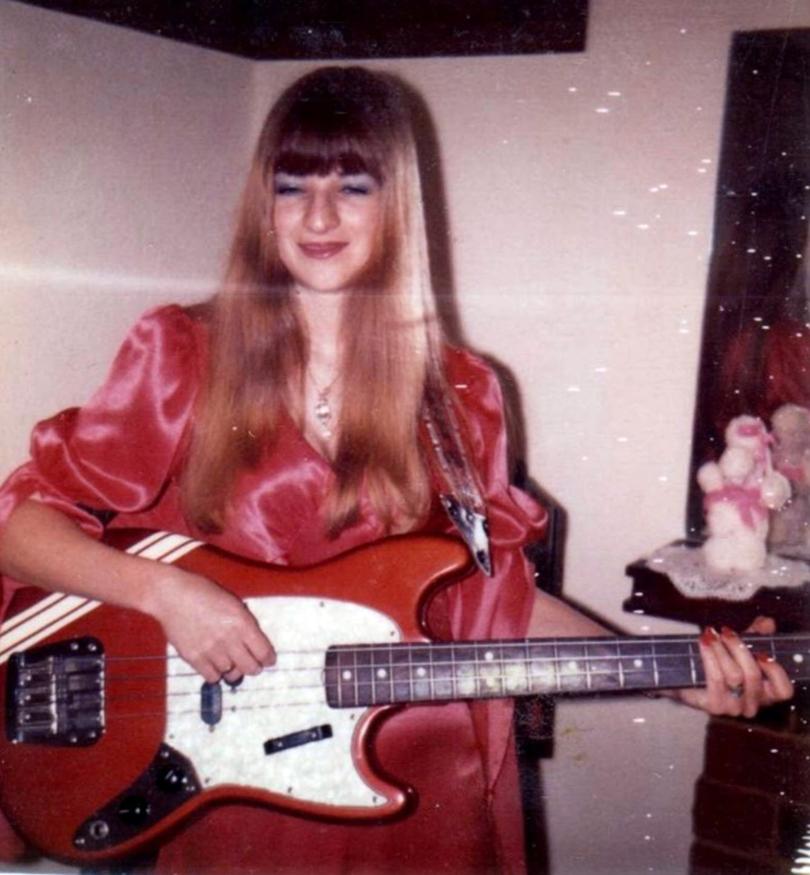
Mr Bright, who was then in his late 20s, immediately noticed something was missing.
“Straight away I noticed the guitar boxes weren’t there.”
One of the missing guitar cases contained a Fender Mustang deluxe bass. The other housed Mr Bright’s prized Gibson.
“People would know it because it’s similar to the guitar played in the school dance scene in the first Back to the Future film,” he said.
“It had a Variatone switch, which very few guitars had back then.
“It would be a collector’s item now. Rather than someone using it in a band it would be sitting on a wall being displayed.
“Someone may have bought it or been given it. It could be anywhere in Australia, or the world really, but wherever it is there is a clue about this murder.”
Both guitars had another distinctive feature – custom padding of vinyl and cotton pads about 20cm in diameter stuck to the back.
Mr Bright said the original detectives probing the murder didn’t take the theft’s connection to the crime seriously.
“Our trailer of musical gear gets stolen and then everything gets found burnt out around Kerryn’s body,” Mr Bright said.
“They didn’t see any connection. We could see it. We thought ‘what was the odds of our gear being at the same location?’
“They kept asking us about insurance. They thought it was some kind of insurance job. It was ridiculous. I must have told them five or six times that we had no insurance.”

Mr Bright heard little about the case in ensuing months but a chance encounter in a music store thrust the crime back into his life.
“The missing guitar cases were very distinctive because I made them myself,” Mr Bright said.
“I wanted them to be very strong because they get knocked around so much. They were made of jarrah.”
Mr Bright was astounded to see his handiwork at a music store in Perth’s working class south-east about two years after the theft.
“I was in Thornlie Music on Albany Highway. I asked the owner where he got it but he said he didn’t know.
“I went to the police but it took a few days for them to go out there by which time the case had been sold for cash.
“No trace. I was stupid. I didn’t say ‘I’ll take it now or buy it now’ and I should have.”
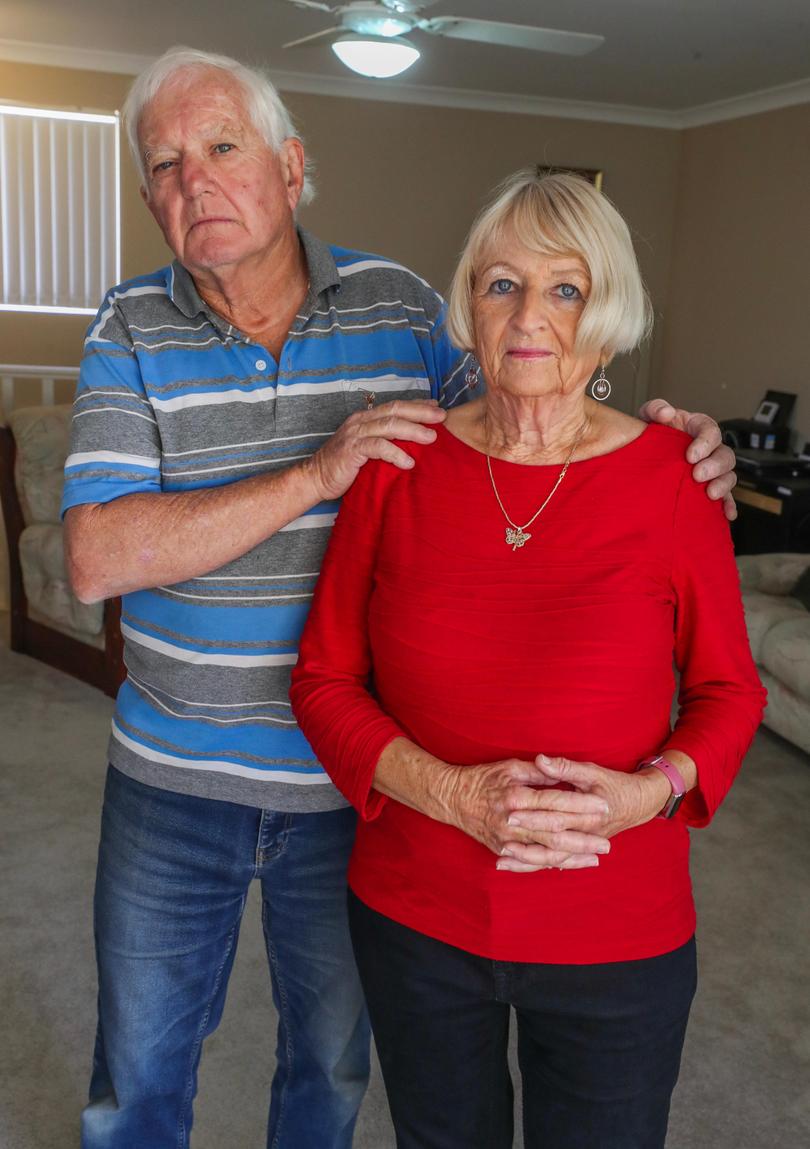
WA Police are interested in talking to anyone with information about the guitar but their focus is on identifying male DNA found at the scene.
The DNA did not match samples stored in State or national databases so the Special Crime Squad is using so-called investigative genetic genealogy to narrow the search for the killer.
Investigative genetic genealogy can match unknown DNA to distant family members whose DNA is logged on international databases. A hit gives detectives a fresh avenue of inquiry.
Somebody should put their hand up, somebody knows something it, can’t be unknown, somebody knows what happened that night, that day, that weekend.
“The sample obtained from the crime scene of Kerryn Tate has been forwarded to the international genealogy databases and they’ve given us a number of people that have a similar genetic makeup to our suspect,” Detective Inspector Darryl Cox told a true crime podcast that recently covered the crime.
“So this has given us a starting point to compile a number of family trees. And we’re very confident that as a result of investigative genetic genealogy that we will eventually get a name of a person who left that DNA at the crime scene.”
The cold case detective reviewing the case believes Ms Tate’s killer lit a fire to cover their tracks.
“We believe as investigators that the fire was lit purposely to destroy all evidence of the murder and the location of Kerryn’s remains,” Det-Sgt Dion Selby told the Cold Case Western Australia podcast.
“She had received some significant injuries prior, and I’ll stress it was prior, to her being set alight. So she was deceased prior to the offender having set her on fire.”
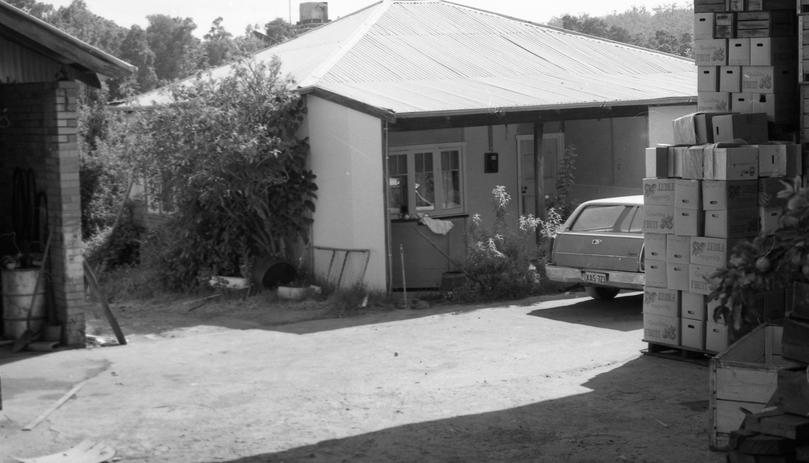
The Brights threw away the silver medallions linked to the crime 45 years ago.
“I didn’t want something associated with something so horrible in the house,” Mrs Bright said.
“Because we lost a child we have always wondered what the mum was going through.
“There was no profile on Kerryn. No family or mother talking about her. We were thinking ‘what’s she done?’ Why doesn’t anyone want to tell her story?”
It would be another quarter of a century before the public would learn more about Ms Tate, with details of her life in NSW unearthed in a true crime podcast created by WA Police.
Mr Tate’s family recalled how she was the oldest of five siblings and had married an Englishman in 1975.
She had moved to WA in 1978 searching for a fresh start in life after the death of one of her twin daughters.
The 14-week-old girl died from suspected sudden infant death syndrome.
“Somebody should put their hand up, somebody knows something it, can’t be unknown, somebody knows what happened that night, that day, that weekend,” Ms Tate’s sister Annemarie told Cold Case Western Australia.
“This doesn’t come from a hateful place or revenge or blame or punishment, it’s just a matter of wanting to know why. I think it’s time that we knew why this happened. Because it’s been way too long, and somebody has been living with this their whole lives.”
“That person must cringe, unless that’s the sort of life they’ve chosen to live continuously ever since. Was it a deliberate act, was it a mistake, was it an accident, was it intended, did something go wrong, did they know her, did they not know her, were they angry at her – did she hurt them?
“I mean these are the questions that go through your head as to why, just why did you do it. Just let us know what you did – why?”
Anyone with information about the missing guitars or the murder itself should call Crime Stoppers on 1800 333 000 or crimestopperswa.com.au. A reward of $1 million is on offer for information that leads to a conviction.

